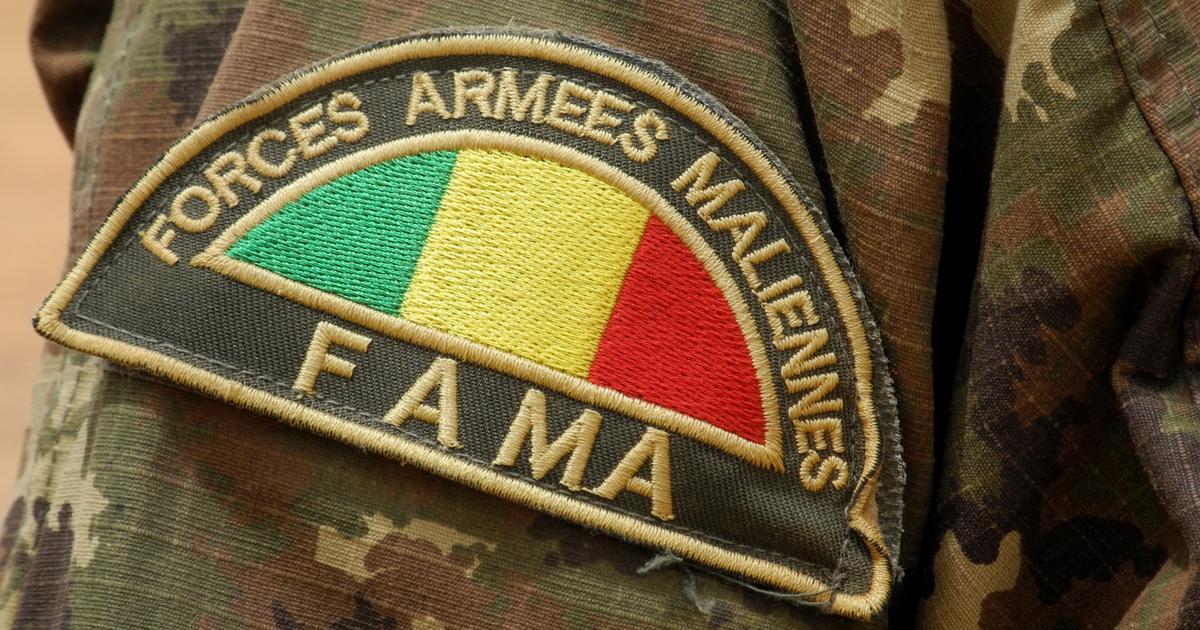An imam, children and other inhabitants rounded up in a mosque and then executed.
A total of 35 people were killed on Sunday, September 18 in central Mali, in a new deadly operation attributed to the Malian army, according to several local and security sources quoted by RFI.
Two weeks earlier, the French media had already revealed accusations of rape and looting by Malian soldiers, a few kilometers away.
Entering the abandoned village of Nia-Ouro, the soldiers accompanied by "
foreign white men
" - Wagner's mercenaries according to Westerners, Russian instructors according to the Malian junta - found only old men and women there.
The white militiamen would then have ordered them to undress to take their picture and touch them, going as far as rape, according to the testimonies of some.
The localities of Nia-Ouro and Gouni reported abuses by the Malian armed forces on September 4 and 18, 2022 respectively. Datawrapper / Le Figaro
Read alsoMauritania designates the Malian army after the death of fifteen civilians
In Gouni, since Sunday, rumors had already been circulating on local WhatsApp groups about new abuses by the Malian Armed Forces (FAMa), with supporting photos.
On Saturday, Malian soldiers accompanied by Russian auxiliaries had suffered a setback when they faced elements of the Katiba Macina of the Support Group for Islam and Muslims (Jnim).
The soldiers would have been forced to turn around, and would have returned to the assault by air force, bombarding the nearby forest.
No victim had been deplored so far, apart from about sixty cattle.
A few hours later, soldiers accompanied by Russian auxiliaries landed in the village of Gouni, already partly emptied of its fleeing inhabitants.
In the evening, traditional dozo hunters, armed men generally responsible for security in remote areas, join them.
They reportedly went on the attack the following day, first attacking the Fulani part of the village, Gouni Wouro, before heading towards Gouni Saré, the Dogon part.
A local agreement between villagers and jihadists
The process repeats.
Last March, in Moura, still in the center of the country, Malian and foreign soldiers landed by helicopter in broad market day and massacred nearly 300 people.
When the Malian army welcomed the success of a vast "
anti-terrorist operation
", the NGO Human Rights Watch (HRW) pointed to its side of "
summary executions
" of civilians.
The organization spoke of the "
worst episode of atrocities
" committed since the unleashing of violence in Mali in 2012.
Since the appearance in 2015 of the jihadist group Katiba Macina, clashes have multiplied between the different ethnic groups present in central Mali.
Its leader, Amadou Koufa, himself of Fulani origin, recruits in particular from this community of nomadic herders, mixing an ethnic aspect with the jihadist crisis.
In March 2019, in the village of Ogossagou, east of Mopti, 160 Fulani were massacred during an attack attributed to Dogon hunters.
Read alsoPatrick Robert: "Beyond the case of Mali, why anti-French sentiment is increasing in Africa"
This time, several researchers mention the existence of a “
local agreement
” signed in Gouni between the population and the jihadist groups.
Faced with the insecurity and impotence of the Malian army, the villagers would have been forced to negotiate peace with the jihadists, sometimes including NGOs.
"
Once these agreements are established, they guarantee populations the right to resume their economic activities and allow the de-escalation of violence
", explains on Twitter the researcher Yvan Guichaoua, specialist in security issues in the Sahel and lecturer at the Brussels School. of International Studies.
These asymmetrical agreements, whose conditions remain imprecise, are paid “
at a high price
” by the populations.
"
It is these pacts that [the FAMAs and Wagner] want to break at all costs, even if it means considering the populations as accomplices, even though they had little choice but to comply
", deciphers Yvan Guichaoua .
"
By committing atrocities, (they) do not break survival pacts but reinforce them
", points out the researcher, referring to "
dozens of pacts
" signed after the Moura massacre.

